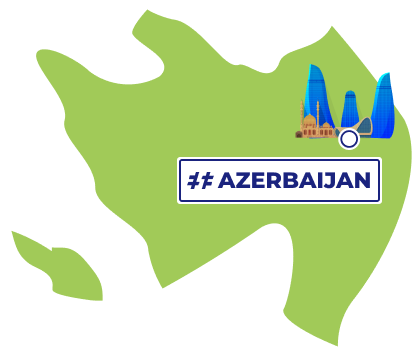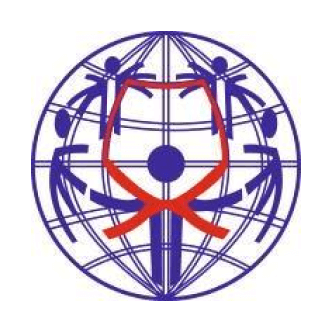
Azerbaijan
01. HIV care cascade
02. Removing HR/gender barriers
ACTIVITIES
Evidence-based advocacy interventions with the aim of removing legal barriers to, and improve the rights of, migrant access to HIV and TB care in sending and receiving countries of in EECA region: national and regional (EECA) meeting and roundtables with participation of civil society, migrant organizations, healthcare officials and parliamentarians
Progress to date
On December 9, the REGMH with the assistance of the NCC Secretariat held in Dushanbe a Roundtable “Protection of health of migrants from Tajikistan”. The event was timed to presentation of a new study conducted by the REGMH: “Situation and Economic analysis of HIV-related health services in the field of migration in Tajikistan”.
On December 13, 2022, the Regional Expert Group on Migration and Health together with Central Asian Association of People Living with HIV held a Roundtable in Almaty “Health of HIV positive migrants in Kazakhstan”. The aim of the Round Table was to promote effective and timely treatment of international migrants living with HIV. During the meeting, the Situational and Economic analysis on the provision of HIV-related health services for international migrants in Kazakhstan was presented and discussed.
On December 19, REG together with local NGO “Real World. Real People” held a Roundtable in Armenia, Yerevan aimed to buster a discussion and exchange of experience on the provision of services for international HIV-positive migrants between heads of health authorities of the Republic of Armenia, government departments responsible for migration and civil society organizations. At the meeting, a study “Analysis of legal and institutional barriers to accessing HIV services among migrants in the Republic of Armenia” (developed by REG in 2021) was presented.
On October 11, REG held an online meeting “Migrants’ access to HIV services in Central Asia and Caucasus” that gathered representatives of UNAIDS, Central Asian Association of PLHIV (Kazakhstan), TB People (Georgia), NGO “Real World, Real People” (Armenia), IFRC Central Asia, WHO Europe, Elton John AIDS Foundation, NGO Equality Movement (Georgia), AFEW (Kyrgyzstan), IFRC South Caucasus, Global Fund, WHO, and MSF. The goal of the meeting was to initiate a discussion and work out possible solutions to provide access to HIV services for those who urgently left the countries following the political situation.
REGMH held a number of online and offline seminars and rioundtables to present and discuss the results of their studies in Azerbaijan, Tajikistan and Kyrgyzstan. A number of discussions was also held to scale up remote registration of migrants with HIV to get access to HIV services. For now, remote registration is functional in Tajikistan, and the preparatory work is implemented in Armenia, Azerbaijan and Kazakhstan.
In particular, on June, 6 in Dushanbe REGMH held a Round Table on protecting health of Tajik migrants. The purpose of the meeting that gathered together the staff of the AIDS Center, the patients’ community, specialists from NGOs in the region and host countries was to discuss the maintaining of the algorithm for remote registration of citizens of Tajikistan with HIV living abroad, and to formulate further steps to improve access of migrants to HIV services. Deputy Director of the Republican AIDS Center made a proposal to develop and sign a Memorandum for Mutual Recognition of Medical Tests at the level of Republican AIDS Centers in the Central Asian region.
On December 4, REGMH held a Round Table in Yerevan, Armenia. The key focus of the meeting was the provision of HIV services for Armenian citizens living abroad.
On December, 25 REGMH participated in online meeting to discuss current issues of implementation/piloting of “Remote registration of migrants with HIV in Uzbekistan”, organized by a consortium of organizations in Uzbekistan to promote the protocol, including IOM, CCM, AFEW, and REGMH. During the meeting, representative of CCM informed that the protocol was accepted and signed by the Center for State Sanitary and Epidemiological Surveillance of the Republic of Uzbekistan. What is very important, the final version includes recommendations suggested by REGMH making it easier to register a migrant than it was in an initial version of the document.
On June 15, REGMH held its quarterly Working group meeting on remote registration of PLWH living abroad. As a result of the Round Table held earlier in Uzbekistan, the group managed to attract specialists from the Republican AIDS Center and the CCM of Uzbekistan. During the meeting, the Group discussed the issue of accepting medical documentation (certificates, test results) issued by country of migrant’s destination, which are necessary for remote registration; also, the standard for the minimum set of documents for remote registration of citizens in migration (based on WHO’s recommendations) were presented to participants on order to foster the development of remote registration in the EECA countries.
REGMH has launched a series of Webinars “Health of Refugee and Migrants from the EECA countries”, designed both for those who flee and seek help in the host country and for those who organize help in receiving countries. Also, webinars could be of interest to those who research and solve systemic problems.
The first webinar took place on August 09 and was devoted to revision of problems that Ukrainian refugees who use drugs face: “People Who Use Drugs from Ukraine: Challenges and Solutions”.
Migration and Health Summer School was hekd on 21-22 Aug 2023 in Yerevan, Armenia. where participants discussed best practices and solutions for providing medical care to migrants and refugees from the EECA region. Country representatives of REGMH from the EECA region, representatives of health authorities from the EECA countries, experts from regional and international organizations, WHO, UNAIDS, UNDP, and MSF attended the event, totally, 40 participants from 12 countries.
On November 24, 2023 REGMH held a Round table in Bishkek, Kyrgyzstan to discuss current issues of migrant health in the context of HIV. The event brought together experts from relevant ministries and departments, non-governmental and civil sectors, as well as representatives of international organizations. A key part of the round table was the presentation of study’s results conducted by REG in 2023 “Situational and economic analysis in the field of migration and the provision of medical services related to HIV in the Kyrgyz Republic” to identify legal and institutional barriers related to HIV faced by citizens of Kyrgyzstan returning from migration.
REAct (https://react-aph.org/): Monitoring of human rights violations and discrimination against PLHIV and KPs. Responding to such cases through provision or referring to legal or social services to victims and through advocacy actions. In Georgia, Kyrgyzstan, Moldova and Tajikistan, REAct system was initiated within SoS_project#1.0 in 2020, and in 2022 is transferred to national funding, meanwhile APH continues to provide technical support to users. In Ukraine, REAct was implemented in 2019 and is functional within national GF grant. REAct system is supported by APH in Uzbekistan for 2022-2023, in 5 Balkan countries – for 2022-2024, and in Armenia and Azerbaijan – for 2023-2024. At the same time, regional networks ECOM and ENPUD started to use REAct program for documentation in several countries of the region and are supported for 2022-2024 within SoS_project#2.0 grant.
Progress to date
REAct system is available and functional at the national level in the following counties. It enables documentation of cases of human rights violations: Albania (45 cases), Armenia (182), Azerbaijan (174), B&H (70), Montenegro (60), Kazakhstan (363), North Macedonia (42), Tajikistan (1155), Serbia (24), Uzbekistan (835). More detailed data of 2023 is available in REAct Regional Digest and REAct website.
Cumulatively in 10 countries, 49,9% of documented cases were responded by REActors, their organizations or through referral to partner NGOs or institutions. During 2023 in 10 countries, there were provided 2162 consultations about human rights, 1022 consultations with professional lawyers. In 168 cases REActors helped to draft simple legal documents, such as complains or statement to police, in 236 cases represented client’s interests in medical facilities, assisted in getting medical services and support, in 336 cases – accompanied the client in the initial appeal to the police. There were at least 20 strategic court cases, and at least 162 cases were used for shadow reports to UN Treaty Bodies.
03. Budget advocacy
ACTIVITIES
Legal framework for financing HIV services from domestic funds – development and approval
Progress to date
Targeted activities were held in all project countries to discuss with national and international, governmental and non-governmental stakeholders the changes needed to enable sustainable and uninterrupted funding of HIV-related activities from national resources. Through targeted advocacy, technical support, and an integrated approach to HIV funding, in 2022 the project team managed to allocate approximately 1,7 million USD at the national level to programs for key populations, using social contracting mechanisms: Moldova – 154,126.84 USD; Kazakhstan – 118,529.33 USD; Kyrgyzstan – 61,000 USD; Tajikistan – 19,200.00 USD; Georgia – 357,000 USD; Ukraine – 931,453.96 USD.
Increasing domestic financing of countries for services to key groups
Progress to date
Targeted activities were held in all project countries to discuss with national and international, governmental and non-governmental stakeholders the changes needed to enable sustainable and uninterrupted funding of HIV-related activities from national resources. Through targeted advocacy, technical support, and an integrated approach to HIV funding, in 2022 the project team managed to allocate approximately 1,7 million USD at the national level to programs for key populations, using social contracting mechanisms: Moldova – 154,126.84 USD; Kazakhstan – 118,529.33 USD; Kyrgyzstan – 61,000 USD; Tajikistan – 19,200.00 USD; Georgia – 357,000 USD; Ukraine – 931,453.96 USD.
Regulation of service packages for key groups
Progress to date
In the reporting period, the Emergency package of services for key and vulnerable groups of the population in the field of HIV, and TB in the context of military conflicts was finalized, including tariffication. On its basis, in 2023, the process of advocacy and promotion of implementation at the level of countries in the EECA region will be launched.
Strategic Brief on Business Continuity (link) and Strategic Brief on Social contracting (link) were developed. In addition, Analysis of Quality of Services Provided in Azerbaijan was held and is available at the link.
Municipal budget advocacy for cities that chose the Fast Track approach Azerbaijan
Progress to date
As the result of budget advocacy the city administrations in Dushanbe ($130 000), Podgorica ($43 000), Skopje ($35 000), Tirana (USD 32,000), Novi Sad (USD 9,000), Sabac ($7 500) and Zvezdara ($4 000) allocated funds for the implementation of activities that would achieve the goals of the Paris Declaration.


